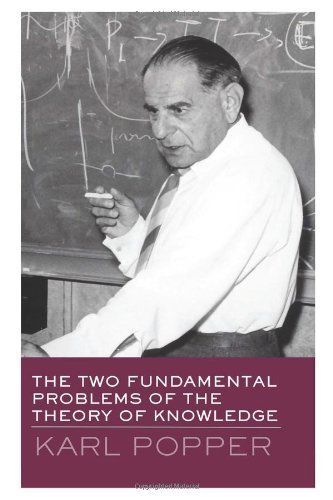
Beiden Grundprobleme der Erkenntnistheorie
Reporting in great detail on important research Popper carried out between 1930 and 1933, "Die beiden Grundprobleme der Erkenntnistheorie" was not published in German until 1979. The two fundamental problems of knowledge that lie at the centre of the book are the problem of induction, that although we are able to observe only a limited number of particular events, science nevertheless advances unrestricted universal statements; and the problem of demarcation, which asks for a separating line between empirical science and non-science. Popper seeks to solve these two basic problems with his celebrate theory of falsifiability. He argues that science is separated from non-science not by the verifiability but by the falsifiability of its theories. He argues also that the inferences made in science are not inductive but deductive; science does not start out from observations and proceed to generalise them, as many presume, but start with problems, which it attacks with bold conjectures. "The Two Fundamental Problems of the Theory of Knowledge" contains the seed of many of the celebrated arguments that were later to find definitive expression in Popper's most celebrated work, "The Logic of Scientific Discovery". --from publisher description.